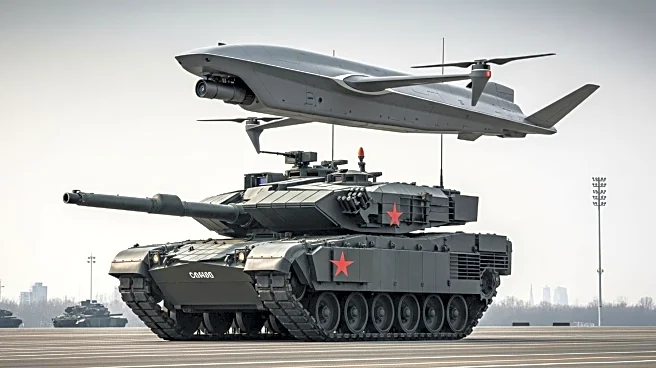What's Happening?
China's recent military parade in Beijing showcased a formidable array of advanced weaponry, including intercontinental ballistic missiles, hypersonic glide vehicles, and a variety of drones. The parade was a clear message of China's military strength and its vision for a new world order. Notable highlights included the DF-61 missile and mobile laser air defense systems, which could pose significant challenges to adversaries. The display emphasized China's industrial capacity to produce and deploy advanced military capabilities rapidly, potentially surpassing Western counterparts in some areas.
Why It's Important?
The parade signifies China's growing military prowess and its ability to challenge U.S. dominance in the Indo-Pacific region. The focus on advanced drones and directed energy weapons suggests a shift towards more autonomous and efficient warfare. China's ability to produce these systems in large quantities could alter the strategic balance, prompting the U.S. and its allies to reconsider their defense strategies. The event also highlights China's increasing defense spending, which has rapidly closed the gap with the U.S., potentially reshaping regional security dynamics.
What's Next?
China's advancements may lead to increased military competition and a potential arms race in the region. The integration of AI and autonomous systems into military operations raises ethical and operational challenges, as countries navigate the implications of intelligent warfare. Additionally, China's growing influence through arms sales and military partnerships may further extend its geopolitical reach, potentially reshaping alliances and regional security dynamics.
Beyond the Headlines
The parade underscores the ethical considerations of integrating AI into military systems, as decisions in fast-moving battles may increasingly rely on autonomous technology. This raises questions about accountability and control in warfare. Furthermore, China's ability to produce advanced weaponry indigenously highlights its strategic independence, reducing reliance on foreign suppliers and potentially insulating it from international pressure.










